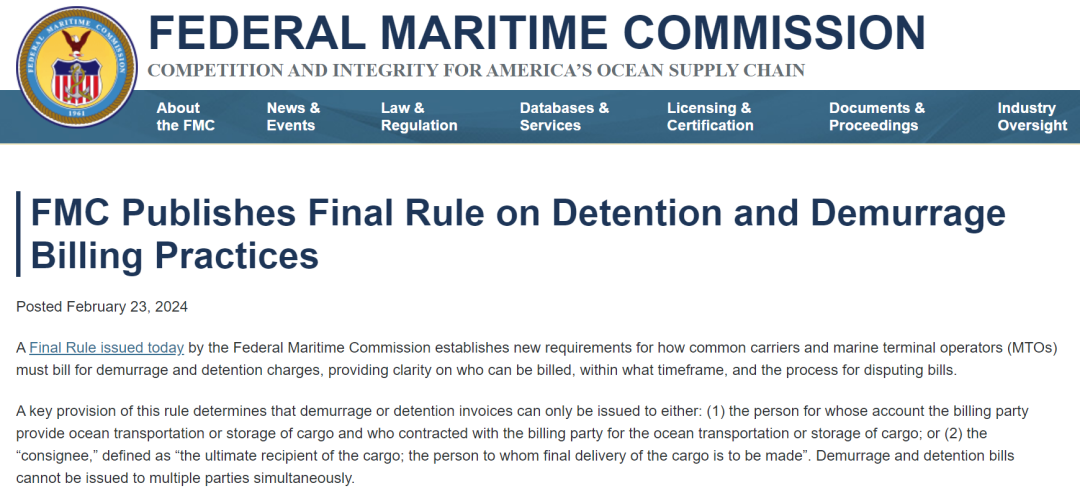 United Petroleum Equipment Pte. Ltd.
United Petroleum Equipment Pte. Ltd.

Recently, the U.S. Federal Maritime Commission (FMC) ’s Final Rule on container demurrage and demurrage (D&D) has finally been released and will be implemented from May 26!

FMC related announcements
Demurrage refers to the fee charged by the carrier and terminal operator when the consignee fails to pick up the goods within a certain period of time; demurrage refers to the fee charged by the consignee for failing to transport the empty container back to the terminal on time. cost of.
According to FMC’s new regulations, D&D invoices can be issued to the shipper or consignee, but not to multiple parties at the same time. At the same time, carriers and terminal operators must issue D&D invoices within 30 days after the last charge. The charged party has at least 30 days to propose fee reductions or request a refund. Once a disagreement arises, both parties must resolve the issue within 30 days, unless both parties agree to extend the communication time.
It is worth noting that the new regulations issued this time also require the invoices for demurrage and detention fees issued by shipping companies to contain the following 8 key information:
1. The invoice date
2. The invoice due date
3. The allowed free time in days (free time in days)
4. The start date of free time (free period start date)
5. The end date of free time (the end date of the free period)
6. For imports, the container availability date (free use date of imported containers)
7. For exports, the earliest return date (the earliest return date of export containers)
8. The specific date(s) for which demurrage and/or detention were charged (the specific date(s) for which demurrage and/or detention were charged)
The rule emphasizes: “If the shipping company fails to list the above necessary information in detail in the demurrage or demurrage invoice, the cargo owner and freight forwarding company as the invoiced party have no obligation to pay the fee.”
In other words, if the above eight key information stipulated by FMC are not provided in the bill issued by the shipping company, the cargo owner and freight forwarding company can regard it as a violation or unreasonable charge and directly refuse to pay.
